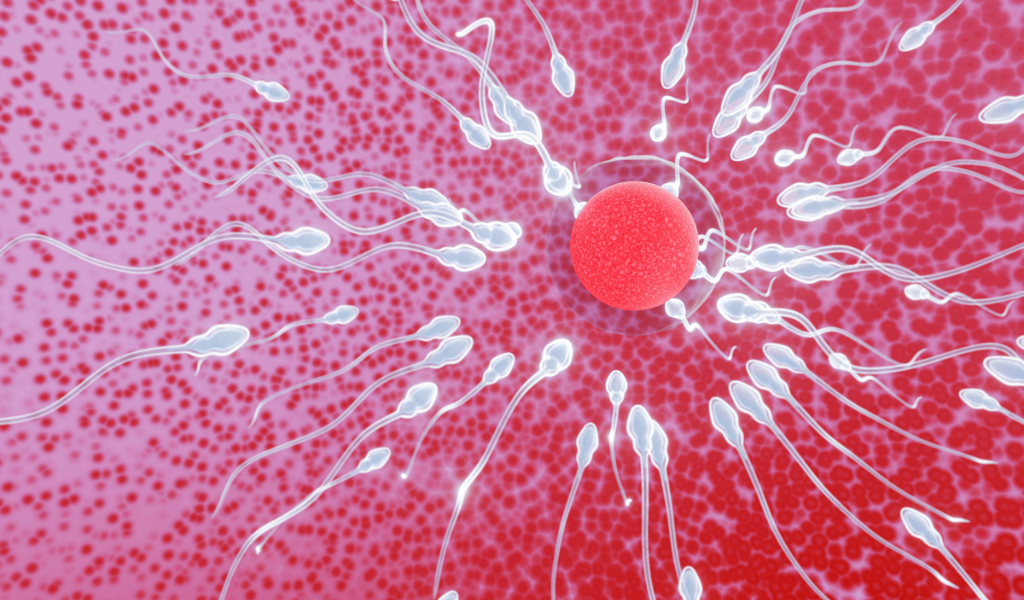In the journey towards parenthood, one of the fundamental aspects often overlooked is the role of nutrition in fertility health. While conception might seem like a natural process, the truth is that it relies heavily on various factors, with nutrition playing a crucial role in underpinning the reproductive health of both parents before baby is even conceived.
This is equally important for couples regardless of whether they are pursuing a natural conception, or for those who need support via assisted conception, IUI or IVF pathways.
As the saying goes, "you are what you eat," and when it comes to fertility, this couldn't be more accurate. Nutrition helps to set the foundation for your journey and get you on the right track for success. Let's delve into why nutrition serves as a cornerstone for good fertility health.
The 3-Month Timeline
When you are considering starting a family or preparing for IVF treatment, it’s helpful to know that there is roughly a 3-month timeframe, within which it is possible to improve your fertility health to increase your chance of success.
We use 3-months as a marker timeline, as we know that it takes this amount of time for a woman to mature an egg in her ovaries and for a man to regenerate an entire batch of sperm, so anything that you change now for the better, can only serve to improve the health of your reproductive cells and supporting your body’s requirements to help optimise the conditions and environment for conception to take place and for a pregnancy to thrive.
You wouldn’t build a house without the correct foundation would you? Or take an exam without studying first? So why not allow yourselves the time to develop the right foundation and environment for a successful conception?

Nutrition and Hormonal Balance
The intricate dance of hormones within our bodies orchestrates various bodily functions, including fertility.
Nutrition plays a pivotal role in maintaining hormonal balance, which is essential for ovulation and sperm production. For instance, essential fatty acids like omega-3 and omega-6 fatty acids are vital for hormone production.
Incorporating sources of these fatty acids, such as salmon, flaxseeds, and walnuts, into your diet can help support hormonal equilibrium.
Certain vitamins and minerals act as cofactors in hormone synthesis, ie Vitamin D, is crucial for both male and female fertility, as it influences hormone levels and supports reproductive health. Similarly, minerals like zinc and selenium play roles in testosterone production in men and regulate menstrual cycles in women.
Nutrition to Optimise Egg and Sperm Health
The quality of both the egg and the sperm cells is vital for successful conception and a healthy pregnancy.
Just as a seed needs fertile soil to grow, egg and sperm cells require a nourishing environment to thrive. Nutrient-rich foods supply the essential building blocks for these cells.
Antioxidants, such as vitamins C and E, are particularly important in protecting egg and sperm cells from oxidative stress, which can damage their DNA and impair fertility. Foods rich in antioxidants, including berries, nuts, and leafy greens, should be a staple in the diet of those aspiring to conceive.
Supporting a Healthy Menstrual Cycle:
In women, a regular menstrual cycle is indicative of good reproductive health. Nutrition plays a vital role in regulating the menstrual cycle, ensuring ovulation occurs consistently. Consuming a diet rich in complex carbohydrates, fiber, and healthy fats can help stabilise blood sugar levels and support hormone balance, thereby promoting regular ovulation.
Additionally, certain dietary patterns, such as the Mediterranean diet, have been associated with improved fertility outcomes. This diet emphasises whole grains, fruits, vegetables, lean proteins, and healthy fats, providing a wealth of essential nutrients that support reproductive health.
Key Nutritional Considerations:
- Fiber-rich Foods: Ensure a high intake of fruits, vegetables, and whole grains to support digestive health and hormone regulation.
- Lean Proteins: Incorporate lean protein sources like poultry, fish, tofu, and legumes to support muscle growth and repair, essential for overall health and fertility.
- Healthy Fats: Include sources of omega-3 fatty acids such as salmon, flaxseeds, and walnuts to support hormone production and reduce inflammation.
- Antioxidant-Rich Foods: Consume plenty of fruits and vegetables rich in antioxidants such as vitamins C and E, which help protect egg and sperm cells from oxidative damage.
- Hydration: Drink plenty of water throughout the day to stay hydrated, support cellular function, and maintain optimal fertility health.
- Stop Processed Foods: Eliminating or cutting back on processed foods and sugar is also advisable as these are inflammatory and can damage eggs and sperm.

The Role of Lifestyle Factors:
Beyond nutrition, lifestyle factors such as exercise, stress management, and adequate sleep also influence fertility health. However, nutrition serves as the foundation upon which these lifestyle factors operate. A well-nourished body is better equipped to handle stress, maintain a healthy weight, and support overall well-being.
Summary:
Focusing on nutrition as a cornerstone of fertility health is paramount. By nourishing our bodies with the right nutrients, we create an environment conducive to conception and healthy pregnancy. Whether you're planning to start a family or simply aiming to optimise your reproductive health, prioritising nutrition lays the groundwork for a fertile future.
Learn more about the role of Nutrition in Fertility
Book a Fertility Nutrition Consultation via IVF Matters








